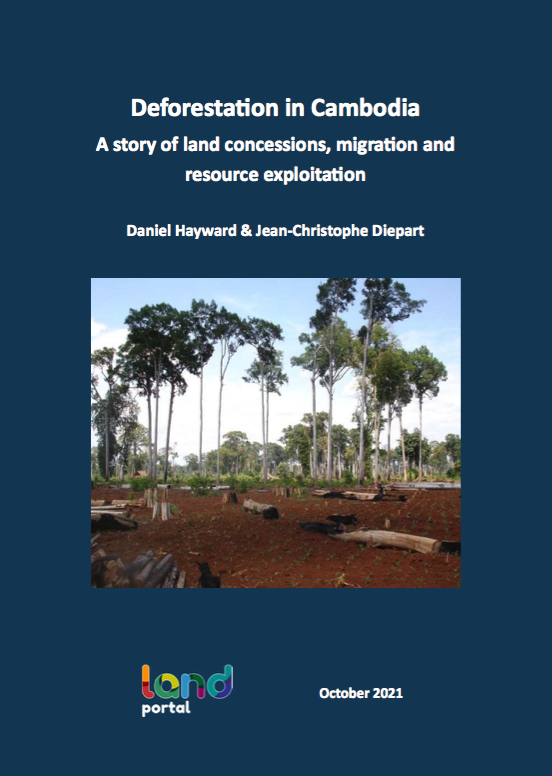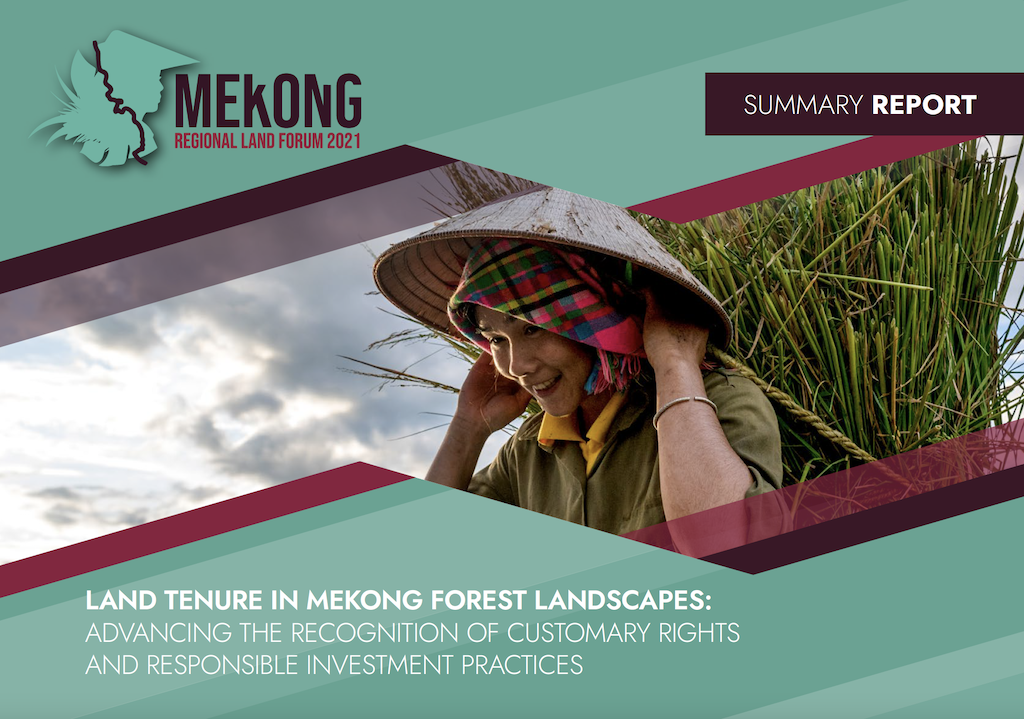Location
The Land Portal is a Foundation registered in the Netherlands in 2014.
The vision of the Portal is to improve land governance to benefit those with the most insecure land rights and the greatest vulnerability to landlessness through information and knowledge sharing.
The goal of the Portal is to become the leading online destination for information, resources, innovations and networking on land issues. Through this it will support more inclusive and informed debate and action on land governance and will increase the adoption and up-scaling of best practices and emerging innovations on land tenure.
Read more about us and join the Land Portal now!
Resources
Displaying 51 - 55 of 177Deforestation in Cambodia: A story of land concessions, migration and resource exploitation
This document has been initially released online as a Land Portal data story. You can find it online here.
Open Up Guide for Land Governance, Version 2.0 (following public comments)
The Open Up Guide on Land Governance is a resource aimed to be used by governments from developing countries to collect and release land-related data to improve data quality, availability, accessibility and use for improved citizen engagement, decision making and innovation. It sets out:
-
Key datasets for land management accountability, and how they should be collected, stored, shared and published for improving land governance and transparency;
Guide pour l’ouverture des donnees ouvertes pour une meilleure gouvernance fonciere
Les Open Up Guides sont des outils pratiques développés par l’ODC et ses partenaires thématiques pour aider les gouvernements et d’autres acteurs à utiliser la publication d’ensembles de données stratégiques pour relever les principaux défis politiques. Ils s’appuient sur des preuves pratiques tout en recueillant des enseignements pour s’assurer que les normes mondiales sont applicables localement.
Land Tenure in Mekong Forest Landscapes
The Summary Report of the 3rd Mekong Regional Land Forum provides a comprehensive review of the key messages from the event including a synthesis of keynote speeches, key take-aways, the links to all presentations and additional documentation.
Women and Community Land Rights: Investing in Local Champions
For more than five years, the Women’s Land Tenure Security (WOLTS) Project has been investigating the intersection of gender and land relations in mining-affected pastoralist communities in Mongolia and Tanzania. The aim has been to develop a methodology for long-term community engagement and capacity building to protect and support the land rights of all vulnerable people – thus to fully mainstream attention to gender equity in land tenure governance within a framework that would facilitate improvements in community land rights across the board.









